- Delaware Technical & Community College is a statewide multi-campus community college committed to providing open admission, post-secondary education at the associate degree level. The College offers comprehensive educational opportunities including career, general, developmental and transfer education, lifelong learning, workforce education and training, and community services.
School Highlights
Delaware Technical Community College-Owens serves 4,296 students (42% of students are full-time).
The college's student:teacher ratio of 21:1 is higher than the state community college average of 16:1.
Minority enrollment is 29% of the student body (majority Black), which is less than the state average of 47%.
Quick Stats (2025)
- Enrollment: 4,296 students
- In-state tuition: $3,530
- Out-state tuition: $8,282
- Student:teacher ratio: 21:1
- Minority enrollment: 29%
- Source: Integrated Postsecondary Education Data System (IPEDS)
School Overview
The teacher population of 201 teachers has stayed relatively flat over five years.
Delaware Technical Community College-Owens
(DE) Community College Avg.
Carnegie Classification
Associates Colleges
Associates Colleges
Institution Level
Less than 2 yrs
Four or more years
Institution Control
Public
Public
Total Faculty
201 staff
201 staff
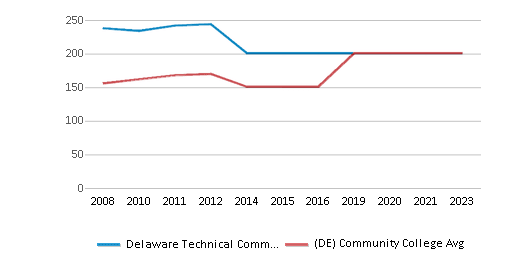
Student Body
The student population of Delaware Technical Community College-Owens has stayed relatively flat over five years.
The student:teacher ratio of 21:1 has stayed the same over five years.
The Delaware Technical Community College-Owens diversity score of 0.47 is less than the state average of 0.65. The school's diversity has stayed relatively flat over five years.
Total Enrollment
4,296 students
4,296 students
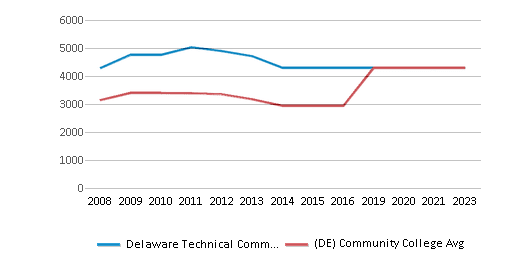
Student : Teacher Ratio
21:1
16:1
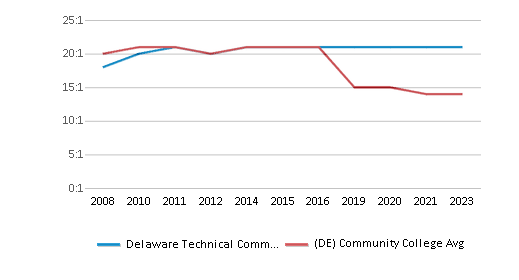
# Full-Time Students
1,803 students
1,803 students
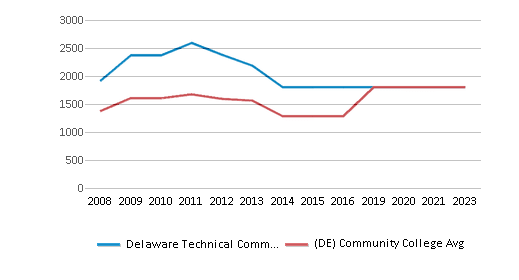
# Part-Time Students
2,493 students
2,493 students
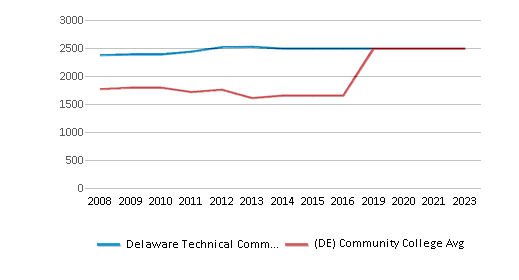
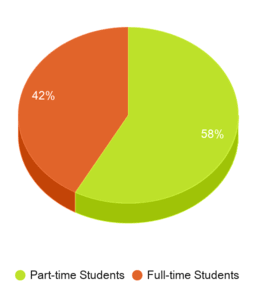
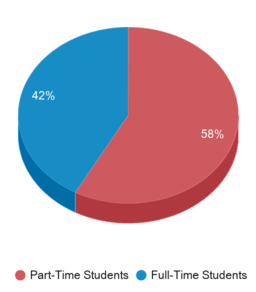
# Enrollment Undergraduate
305 students
151 students
# Full-Time Undergraduate Students
1,803 students
1,803 students
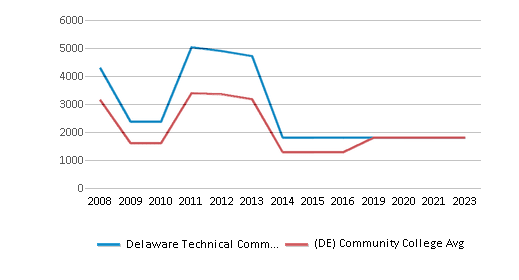
# Part-Time Undergraduate Students
n/a
3 students
Total Dormitory Capacity
n/a
43 students
% American Indian/Alaskan
1%
n/a
% Asian
2%
4%
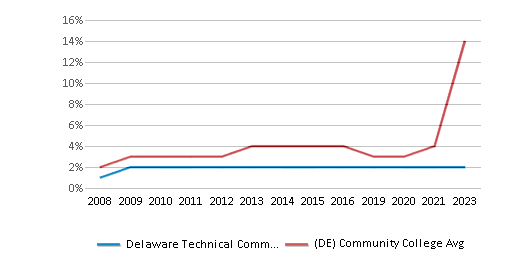
% Hispanic
5%
13%
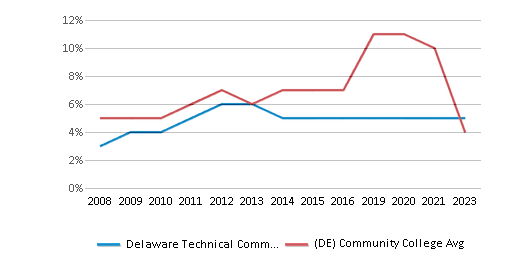
% Black
15%
23%
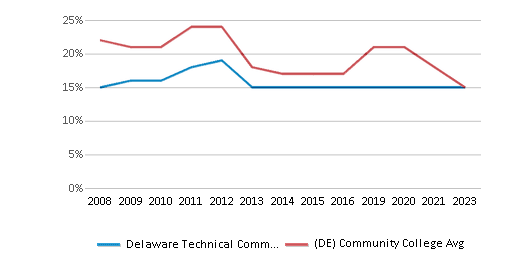
% White
71%
53%
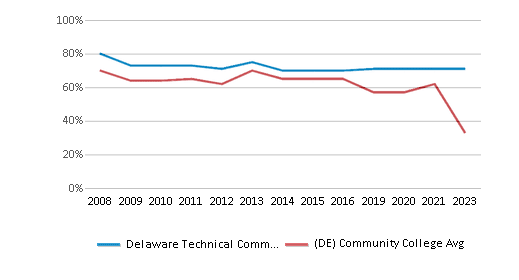
% Two or more races
2%
3%
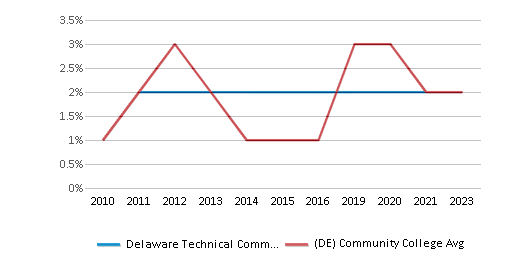
% Non Resident races
4%
2%
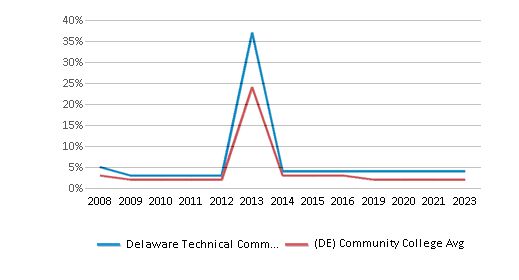
% Unknown races
n/a
2%
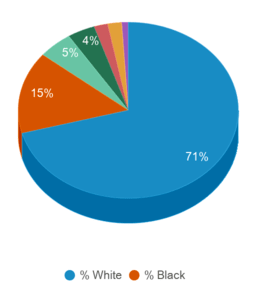
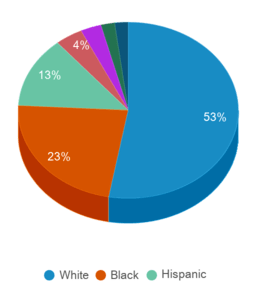
Diversity Score
0.47
0.65
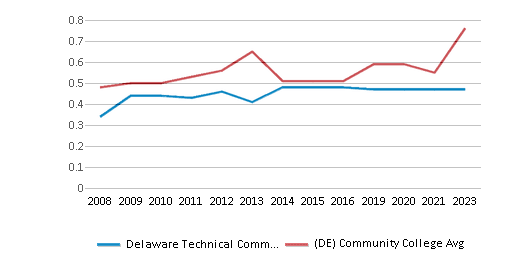
College Completion Rate (Students who graduate in less than 4 years)
18%
15%
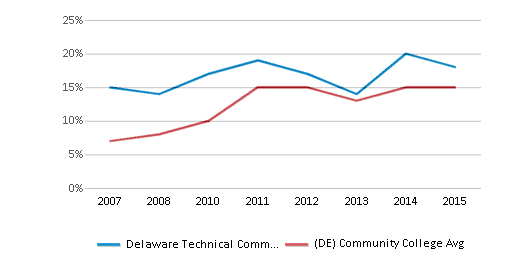
College Completion Rate (Students who graduate in 4 years or more than 4 years)
n/a
0.1969%
Average Graduate Earnings (10 Years)
$32,800
$34,000
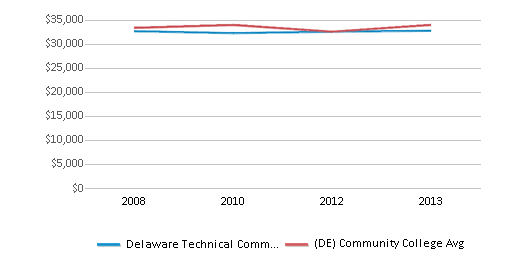
Tuition and Acceptance Rate
The public in-state tuition of $3,530 is equal to the state average of $3,530. The in-state tuition has grown by 14% over four years.
The public out-state tuition of $8,282 is equal to the state average of $8,282. The out-state tuition has grown by 15% over four years.
In-State Tuition Fees
$3,530
$3,530
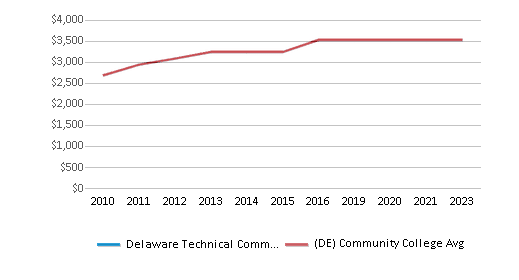
Out-State Tuition Fees
$8,282
$8,282
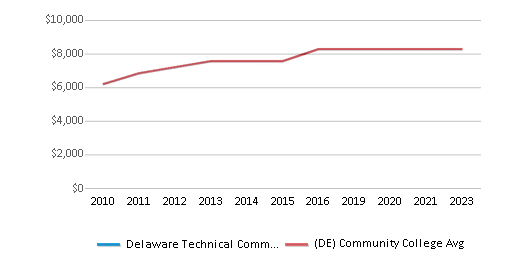
% Students Receiving Some Financial Aid
90%
80%
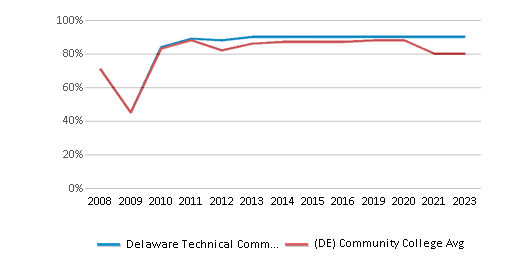
Median Debt for Graduates
$6,750
$7,508
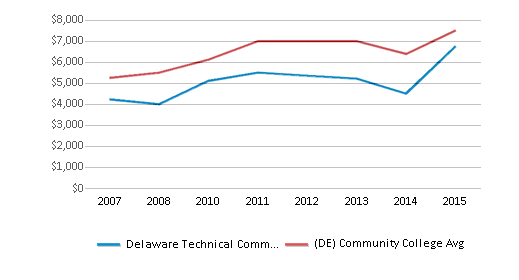
Median Debt for Dropouts
$4,000
$3,500
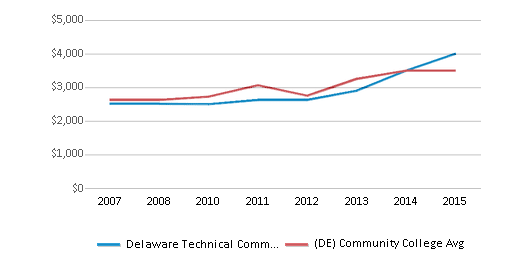
Acceptance Rate
n/a
64%
Source: 2023 (or latest year available) Integrated Postsecondary Education Data System (IPEDS)
School Notes
- Delaware Technical & Community College is a statewide institution of higher education, providing academic, technical, continuing education, and industrial training opportunities to every resident of Delaware at four conveniently located campuses. Several degree programs are offered, and the Associate in Applied Science degree is granted upon successful completion of specific curriculum requirements. In addition, diploma and certificate programs are offered in a variety of technical areas at each campus. The College and its campuses are fully accredited by the Commission on Higher Education, Middle States Association of Colleges and Schools. In addition, several curricula have earned program-based accreditation by various professional organizations. Located in the heart of Sussex County, our picturesque campus, situated on 146 acres with ten major buildings and a recreational complex, is the county hub for higher education. Known as the birthplace of Delaware Tech, the Owens Campus continues to be a leader in the community. Combining a reputation for nationally recognized education and our on-campus partnerships with four-year institutions, the campus offers lots of options as you choose a personalized education to fit the job market. From diverse student activities to the culture of symphony orchestra performances to being the home of national baseball champions, the Owens Campus shares excellence with Sussex County. Delaware Technical & Community College, Owens Campus, offers over 90 programs leading to an associate degree, diploma, and/or certificate.
Frequently Asked Questions
How much does Delaware Technical Community College-Owens cost?
Delaware Technical Community College-Owens's tuition is approximately $3,530 for In-State students and $8,282 for Out-State students.
What schools are Delaware Technical Community College-Owens often compared to?
Delaware Technical Community College-Owensis often viewed alongside schools like Delaware Technical Community College-StantonWilmington, Delaware Technical Community College-Terry by visitors of our site.
Recent Articles

Obtaining Your Bachelor's Degree at a Community College
Explore the evolving landscape of community colleges offering bachelor's degrees, addressing affordability, accessibility, and workforce needs.

A to Z of Community College Certificates and Courses
From business and healthcare to technology and skilled trades, the article showcases the breadth of options available to students seeking to enhance their knowledge, develop new skills, or pursue career advancement.

What is a Community College?
This comprehensive guide explains what a community college is, its history, and its role in higher education. It covers the types of programs offered, differences from four-year colleges, benefits of attending, and important considerations for prospective students, providing valuable insights for those exploring educational options.





